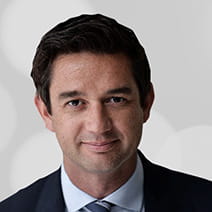After a decade of empire-building, John Stankey (CEO of AT&T) has pulled the proverbial ripcord and ended an era of capital destruction that can only be rivalled by the likes of Jeff Immelt, the ex-CEO of General Electric.
Last week, AT&T announced the next stage of dismantling the “empire” by agreeing to the spin-off and merger of WarnerMedia with Discovery. As a reminder, AT&T purchased this business for $85 billion only five years ago.
In isolation, this seems like a large strategic misstep. But when you combine this announcement with the deal to sell and spin off the DirecTV division − which was initially purchased for $67 billion − into a new company worth $16 billion, the scale of shareholder value destruction is unprecedented.
So, in six years, the senior management team at AT&T have created a company that is less valuable and more heavily indebted than when it first announced plans to acquire DirecTV and then Time Warner.
This prompts the question of what was the strategic rationale and does this provide any justification for the deals? The problem is that these acquisitions were for assets which have business models orthogonal to AT&T’s core business. Whereas AT&T competes for customers in a zero-sum game, WarnerMedia, for example, has differentiated content best leveraged by reaching as many customers as possible.
AT&T tried to bundle its content to create a differentiated offering in the market – resulting in excluding a large cohort of potential customers for HBO Max. It is like Man City benching its starting line-up for the Champion League final – how could HBO Max thrive by only being offered to AT&T customers?
We care about how senior management are incentivised and when we see management extracting too much value from a company, we immediately remove it from our investable universe. A good question at this stage, therefore, would be how much have management paid themselves over this period of extraordinary capital destruction?
The numbers are jaw-dropping, Randall Stephenson, the ex-CEO of AT&T, who along with Stankey built this empire, stepped down earlier this year after receiving $32 million in compensation in 2020. He also left with a golden parachute comprising a pension valued at $64 million and an additional $27.4 million in deferred earnings – highlighting why compensation must be linked with business performance.
But why does this matter for income investors? Simply put, if you chase yield (AT&T traded on a 6% dividend yield), you can get what you pay for – a stock that is cheap for a good reason. In the UK, you have to look no further than Vodafone and British American Tobacco.
Unfortunately, management teams who have the wrong incentives can be set on protecting the status quo no matter what the cost is to shareholders and other stakeholders. This can be seen in other companies making large strategic decisions about future capital allocation decisions where they have business models that are orthogonal to their core business.
When investing for income, we prefer to invest in those companies built to last with an eye on the future by being busy innovating to stay ahead of competition and not moving into adjacent markets by destroying shareholder capital.
This is because price is what you pay but value is what you get.
Key Risks




